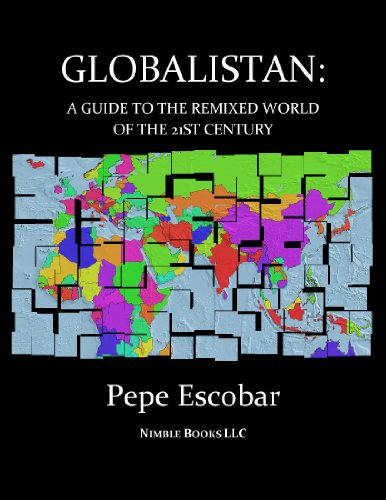At the start of their discussion marathon in Moscow on Thursday, Russian President Vladimir Putin addressed Turkish President Recep Tayyip Erdogan with arguably the most extraordinary diplomatic gambit of the young 21st century.
Putin said: “At the beginning of our meeting, I would like to once again express my sincere condolences over the death of your servicemen in Syria. Unfortunately, as I have already told you during our phone call, nobody, including Syrian troops, had known their whereabouts.”
This is how a true world leader tells a regional leader, to his face, to please refrain from positioning his forces as jihadi supporters – incognito, in the middle of an explosive theater of war.
The Putin-Erdogan face-to-face discussion, with only interpreters allowed in the room, lasted three hours, before another hour with the respective delegations. In the end, it all came down to Putin selling an elegant way for Erdogan to save face – in the form of, what else, yet another ceasefire in Idlib, which started at midnight on Thursday, signed in Turkish, Russian and English – “all texts having equal legal force.”
Additionally, on March 15, joint Turkish-Russian patrolling will start along the M4 highway – implying endless mutating strands of al-Qaeda in Syria won’t be allowed to retake it.
 GLOBALISTAN :How the G...
Buy New $3.99
(as of 03:45 UTC - Details)
GLOBALISTAN :How the G...
Buy New $3.99
(as of 03:45 UTC - Details)
If this all looks like déjà vu, that’s because it is. Quite a few official photos of the Moscow meeting prominently feature Russian Foreign Minister Sergey Lavrov and Defense Minister Sergey Shoigu – the other two heavyweights in the room apart from both Presidents. In the wake of Putin, Lavrov and Shoigu must have read the riot act to Erdogan in no uncertain terms. That’s enough: now behave, please – or else face dire consequences.
The second Ataturk
A predictable feature of the new ceasefire is that both Moscow and Ankara – part of the Astana peace process, alongside Tehran – remain committed to maintaining the “territorial integrity and sovereignty” of Syria. Once again, there’s no guarantee that Erdogan will abide.
It’s crucial to recap the basics. Turkey is deep in financial crisis. Ankara needs cash – badly. The lira is collapsing. The Justice and Development Party (AKP) is losing elections. Former prime minister and party leader Ahmet Davutoglu – who conceptualized neo-Ottomanism – has left the party and is carving his own political niche. The AKP is mired in an internal crisis.
Erdogan’s response has been to go on the offensive. That’s how he re-establishes his aura. Combine Idlib with his maritime pretensions around Cyprus and blackmail pressure on the EU via the inundation of Lesbos in Greece with refugees, and we have Erdogan’s trademark modus operandi in full swing.
In theory, the new ceasefire will force Erdogan to finally abandon all those myriad al Nusra/ISIS metastases – what the West calls “moderate rebels,” duly weaponized by Ankara. This is an absolute red line for Moscow – and also for Damascus. There will be no territory left behind for jihadis. Iraq is another story: ISIS is still lurking around Kirkuk and Mosul.




